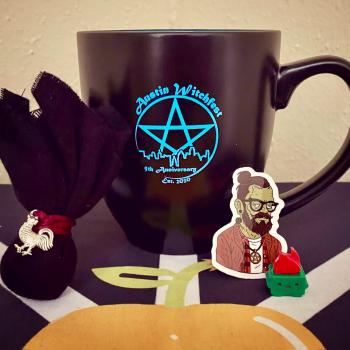Almost two months ago, I wrote in this column on the possibilities of seeing one's sexual behavior or sexual identity as a choice (which, no matter what its origin might be, is still the case, i.e. whether we're born this way or not, we still have the ability to choose how we act upon our desires). The argument was not particularly popular with several readers. I certainly understand why this might be the case, but I think in the scuffle, a more important point was lost.
I would hope that the eventual goal of queer activism is not that gay and straight people have equal rights to marriage benefits, employment, adoption and child custody, service in the armed forces, and freedom from discrimination. Certainly all of those goals are admirable and important; but, thinking in those terms just creates further categories of persons that can be potentially limiting. What about bisexuals? What about polyamorous people? What about gender-variant people? While some of these groups might get knock-on benefits from the other equality measures, there are bound to be oversights and misconstructions in doing so.
I actually hope that the eventual positive effect of queer activism is a change in society so that no one is ever bullied for their gender presentation, mannerisms, interests, or romantic attractions; that "gay" is no longer an insult and a synonym for "anything I don't like"; and, for example, that a male who has dated women for his entire life can one day seek out the romantic and sexual companionship of another male without stigma from any corner, nor pressure to identify as one thing or another, and that his doing so is simply yet another option available to a person, like getting one's hair cut or driving a motorcycle.
To put it in more specific terms: the issue isn't so much that sexual orientation is or is not a choice, nor that it is nor is not something inborn, but instead that its origins shouldn't matter because there is no sensible reason (by which I mean scientific reason—but I'd go as far as to say theological reason as well) that sexual orientation or gender identity should be a factor for scorn or discrimination amongst humans.
As polytheists, and as people who claim to be "earth-based" and "nature-based" in their spiritualities and theologies, there is absolutely no reason to view gender variance or diversity of sexual orientation—which exists in abundance in non-human animal natures—as anything to be upset over or worried about, so long as it is carried out in ways that are also appropriate to human nature and social conventions. Consent is important, and taking into account the feelings and concerns of everyone who is involved is essential; and, certainly, legal measures must be observed as well. I see such social conventions as being a part of human nature, rather than something that is artificial and imposed over our more animal natures, and I take issue with anyone who would argue otherwise. We are not apart from nature as humans, and yet to deny that social life and civil conventions are at this point necessities rather than options that can be freely discarded or ignored at will is the difference between a person with whom I'd like to interact on a regular basis and someone who is a sociopath.
Other religions, unfortunately, do not have this ability to simply take nature as nature and a good in-and-of-itself. Paul's epistle to the Romans, in 1:26 and thereabouts, features a complex argument to the effect that the gentiles (i.e. us polytheists and nature religionists!) have mistaken the creation for the "Creator," and have thus fallen into error in our idolatry, and have "exchanged" natural intercourse for unnatural, both amongst males and females. In other words, homoeroticism emerges from idolatry (and is thus a symptom of sin, not a sin-in-itself). And while I think there's an awful lot of ground to just disagree with this on general terms, both as a queer person and as an "idolater," I'd like to play this out a bit further in order to demonstrate my point above about exclusion and the limits of thinking in terms of being "born this way" that is so prevalent in queer circles.
Many gay and lesbian Christians find themselves in an odd position with this particular part of Romans. What they argue is that because it is in the "nature" of gay and lesbian people to be attracted to people of their own gender, what Paul is really arguing against here is not homoeroticism-as-such, but instead that he is speaking against heterosexuals who are "acting homosexual" in certain social or religious settings. This is a view that is found in John Boswell, John J. McNeill, and many other influential theologians and scholars on these matters, as well as something I've found on leaflets handed out in queer-affirming Christian churches, which thus "proves" that Paul isn't speaking against honest (but monogamous) homoerotic relationships and sex. Further, they argue that the attempts at reparative therapy for queer people in fact contradicts Paul's notions here, since it is "natural" for gay and lesbian people to be attracted to their same gender, and thus "exchanging" such desires for heterosexual ones would be as equally wrong as a heterosexual "exchanging" their natural desires for homosexuality.





